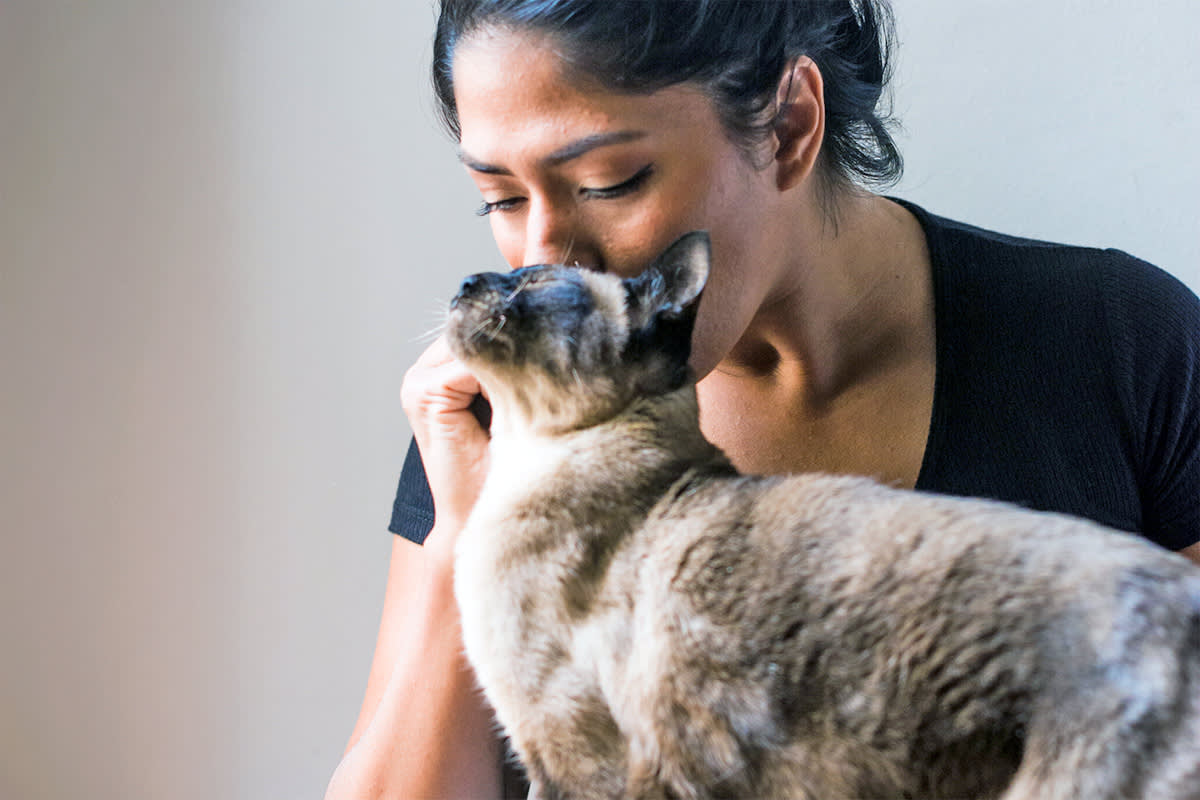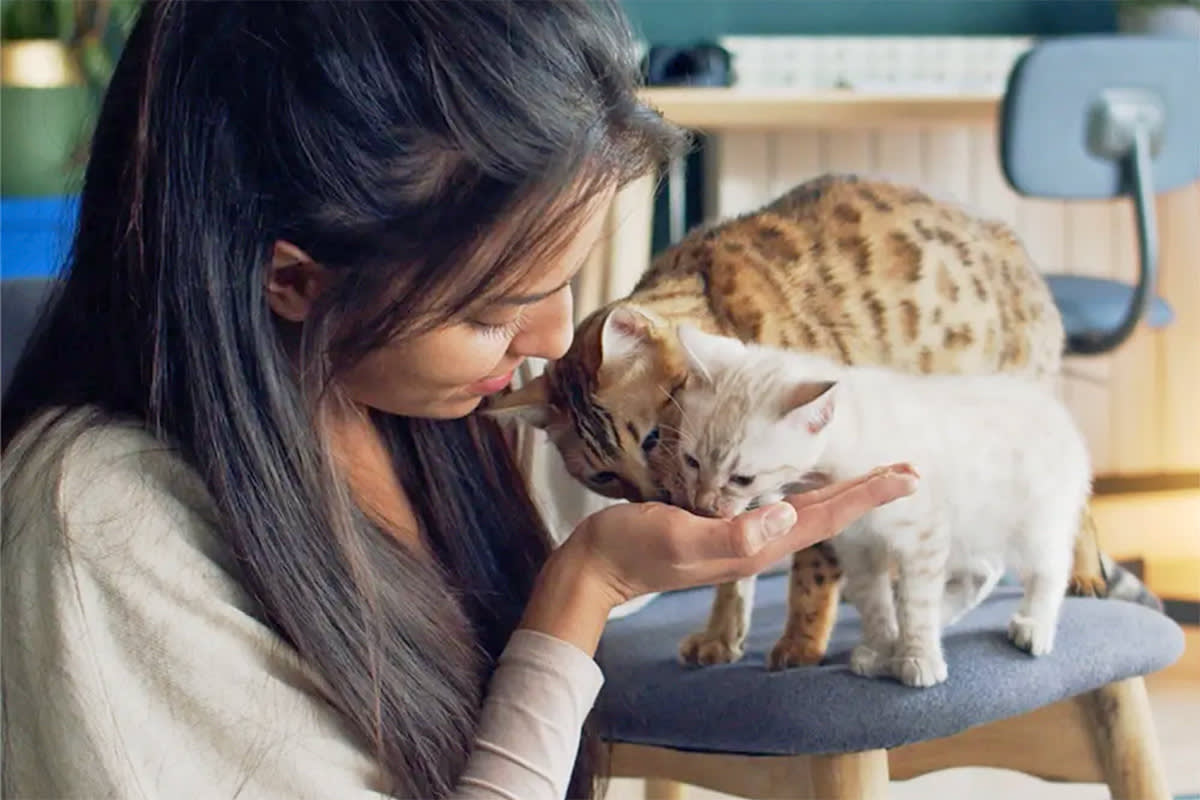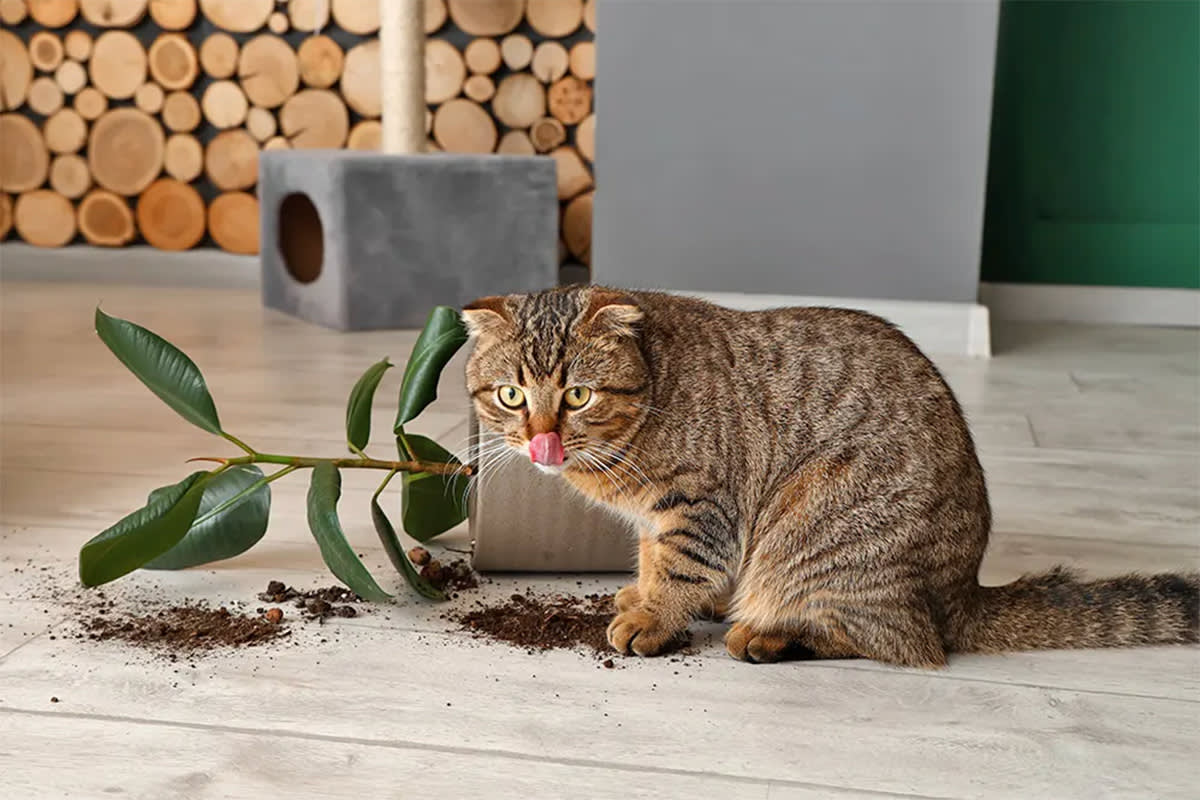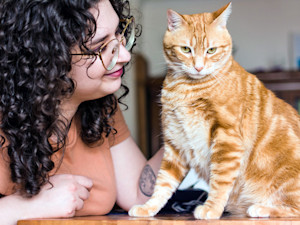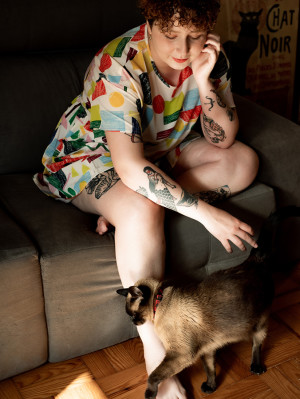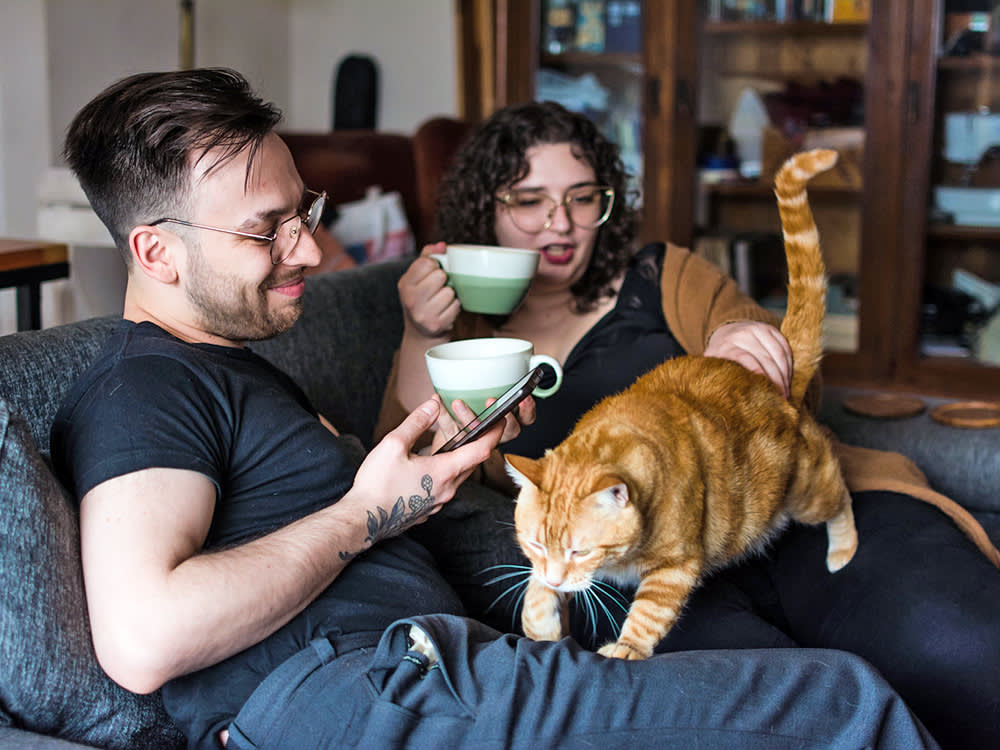
Share Article
I live with three cats, but some people think I only have one. That’s because my girl, Freddy, is the only kitty of the three who’s brave enough to make her presence known when we have visitors. As soon as there’s a knock at the door, my boys bolt for their favorite hiding spots, while Freddy casually saunters over to greet our guests. If the visitor stays long enough, Winston might poke his head out to see what’s going on, but Wilbur won’t leave my bedroom closet until the coast is clear.
While Wilbur’s scaredy-cat behavior may seem to prove the stereotype of cats as introverts (as opposed to dogs, who are widely, if not always accurately, regarded as extroverts), it’s not typical of all cats. “Despite the common belief that cats are solitary creatures, many are quite social — with both other cats and their humans,” says Heather Alveyopens in new tab, a certified cat behavior expert and the owner of Felidae Behavior Consultingopens in new tab. “In the wild, cats often form colonies made up of related females and ‘preferred associates’ — which is essentially a fancy way of saying ‘chosen friends.’”
But what makes some cats more extroverted than others? “Kittens who have positive experiences with people, other animals, and new environments when they're young are more likely to grow into confident, easygoing cats,” says veterinarian Dr. Anna Fosteropens in new tab, an advisor for Whiskeropens in new tab.
“Whether your cat is an introvert or extrovert will depend both on their own natural wiring and on the environment they occupy,” adds Dr. Preston Turano, a consultant for ASPCA Pet Health Insuranceopens in new tab. “In a calm and positive environment, an introverted cat over time may become more comfortable and interact more frequently, whereas even an extrovert may hide in chaotic or loud environments.”

Is your cat extroverted? It may seem like a silly question: If your cat won’t cuddle anyone but you, or jumps into strangers’ laps without reservation, then you probably already know what sort of feline you’re dealing with. But experts say that extroverted cats are likely to exhibit certain behaviors. Here are seven signs that your cat is an extrovert.
1. They’re clingy.
Can’t get up because you’re trapped under a cat? You might have an extrovert on your hands (or rather, in your lap). “My current cat, Frankie, is an only cat. I work from home, so she’s used to having me around most of the time,” Alvey says. “She always wants to be near me or on me. If I go out for even a few hours, she becomes very vocal when I return and tends to stick close to me for the rest of the day.”
2. They follow you around.
“Extroverted cats often follow their humans from room to room, seek constant engagement, and can become bored or anxious when left alone for long periods,” Dr. Foster says. “Try offering more enrichment, like interactive toys, window views, puzzle feeders, walking on a leash, or even consider adopting a companion if your lifestyle allows.”
3. They won’t stop meowing.
Cat behaviorist Stephen Quandt works part-time in a large-animal shelter, and has “seen every kind of cat there is, many times over.” He says vocalizing (meowing and purring) is one way that extroverted cats ask for attention. “Kittens do this to their mothers by meowing, purring, and rubbing, and then mom gives them what they want — which is some combination of food, comfort, attention, and play. And cats do this with us as well.”
4. They lick you.
That’s right — it’s not just dogs! “I had a cat once named Simon who would lick my earsopens in new tab in the morning to wake me up,” Quandt says, explaining that extroverted cats often have their own, specific-to-them, eccentric behaviors. “They may follow us around, reach out with a paw, or sit on us.”
His blind cat, Jenny, likes to sit on his legs when he stretches out on the sofa. “I guess she’s not a lap cat but a leg cat! She will even come get me, pester me, and then I will literally follow my blind girl to the sofa with her leading the way.”
5. They’re constantly grooming themselves.
When people are anxious, they may play with their hair or bite their nails. When cats are anxious, they may do the same. Dr. Foster says that excessive grooming might be a sign that your cat is “craving more interaction and play.” That said, if you notice that your cat is spending more time than usual bathing, it’s a good idea to get them checked out at the veterinarian’s office before you bring home a boatload of new cat toysopens in new tab.
6. They’re one of these breeds.
Dr. Jennifer Sperryopens in new tab, veterinary advisor at Pets Plus Usopens in new tab, says that breed can influence a cat’s temperament. “Siamese cats are known for being social and vocal, Maine Coons are typically gentle and friendly, Bengal cats are energetic and adventurous, and Ragdoll cats are known for being laid back and open to handling,” she explains.
Dr. Foster adds that while some breeds tend to be more social, while others are more reserved, it’s not the whole picture. “Genetics can influence a cat’s baseline temperament, but socialization plays a huge role, too.”
7. They make mischief.
A lonely cat is a cat who’s more likely to get into trouble. If your cat is acting out — knocking things over, jumping on your head in the middle of the night, jumping on the counter when they know very well they aren’t allowed up there — they might be an extrovert looking for stimulation.
Quandt says the best thing to do for a cat like this “is to cater to their every whim, of course!” When you can�’t, that’s where enrichment comes in. Quandt is a fan of “puzzle feeders, climbing trees, perches by windows, smart TVs with bird videos, and snacks” when you’re not home to entertain your extroverted cat.
Dr. Sperry says having a routine helps, too. “Providing varied or interactive toys, regular playtime, and a predictable routine can help alleviate loneliness in extroverted cats.”
Dr. Turano offers a final piece of wisdom, whether your cat is extroverted or introverted: “If you notice changes in behavior such decreased appetite, increased or decreased water intake, or changes in activity level, you should schedule a visit with your veterinarian. They will be your best source to rule out any underlying internal medical issues, versus mental-health concerns.”
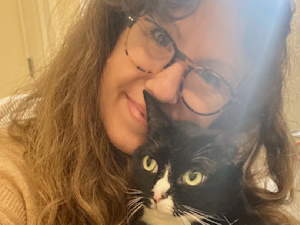
Elizabeth Laura Nelson
Elizabeth Laura Nelson is a writer and editor based in Brooklyn, New York, whose work has appeared in The New York Times, Jenny, Best Life, YourTango, Elite Daily, and more. She focuses her work on relationships, health and wellness, midlife, and lifestyle. As a child, Elizabeth was scared of cats (claws and teeth, yikes) but she has since gotten over her fear and now shares her home with three sweet and gentle feline companions who make life better (and cuddlier) every day.
Related articles
Why Does Your Cat Knead Your Blanket and Purr?
They’re just cookin’ up some biscuits.
![Woman petting her orange cat at home.]()
11 Ways You’re Annoying Your Cat Without Realizing It
Not everybody loves a dance party.
Why Does Your Cat Rub Against Your Legs?
And what they’re trying to tell you when they do.
![a tattooed person with curly red hair on a couch pets a brown and black cat]()
Your Cat Can Tell When You’re Stressed, Study Says
It’s all in their noses.
Why Does My Cat Make “Stink Face”: Understanding the Flehmen Response
It’s definitely not because you disgust them.
Why Do Cats Lay On Your Chest?
That’s quite the cuddle.
